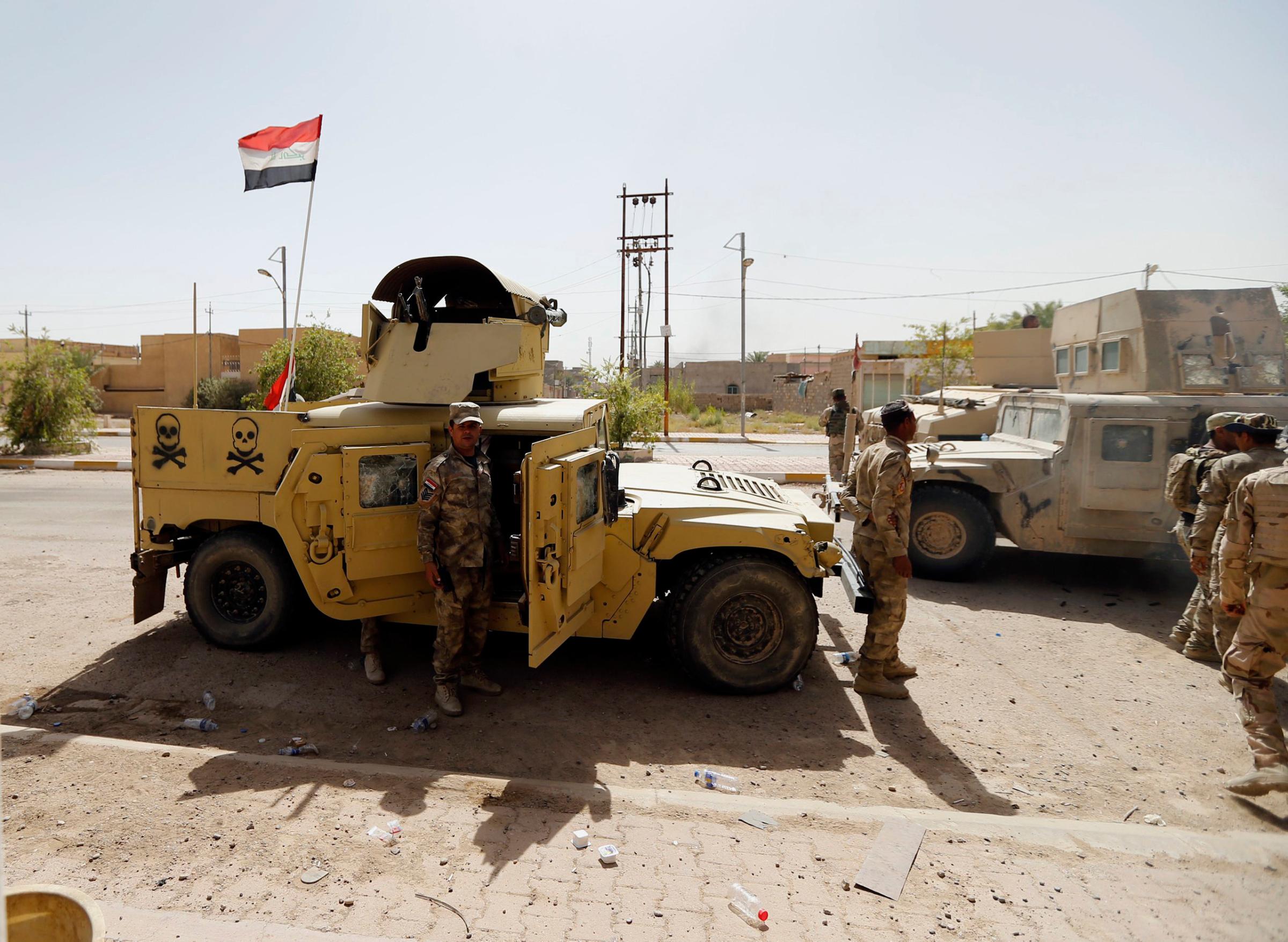The fall of Fallujah’s center to Iraqi government forces is a real loss to ISIS. The city 40 miles west of Baghdad embodies Sunni resistance in Iraq. It was the site of the first clash by ordinary Iraqis with U.S. soldiers, when Americans were basking in the glow of the invasion. It was also the first city to fall into the hands of Sunni extremists, and, after U.S. forces left the country, the first to fall to ISIS, way back in January 2014.
If its fighters are driven from the Western neighborhoods still under ISIS control, “it’s important on several levels,” Douglas Ollivant, a former U.S. Army infantry officer and White House aide in charge of Iraq, told TIME. “This is important in terms of Iraqi politics—Fallujah was seen as a car bomb factory for Baghdad. And I’m not on the ground there so I can’t see what’s happening, but it appears to be falling a heck of a lot faster than any of us anticipated. So maybe this mass strategy of encircling ISIS and making them fight on four different fronts may be working.”
The more territory ISIS loses, the better, because turf has translated to drawing power. In 2014, when ISIS was capturing territory at a rate that evoked the great Muslim expansion of 7th Century, its momentum was a tremendously powerful recruiting tool. But it’s been losing territory steadily for more than a year; Iraqi forces and Shi’ite militias took back Tikrit, then Ramadi, while Iraqi Kurds draw closer to Mosul. And that, along with Turkey’s decision to finally clamp down on its long border with Syria, has severely affected recruitment. In April, U.S. officials said the stream of foreign fighters joining ISIS had been reduced to a trickle, from 2,000 a month a year earlier to just 200.
Wages are down, with fighters paid just $50 a month, and electricity has been cut back in areas it holds, according to documents recovered from towns that ISIS fled. (The documents were assessed in A Caliphate Under Strain, published in April by the Combating Terrorism Center in West Point.) At the same time, ISIS is growing less and less popular among Muslims across the Middle East, polls show. A survey of Arab youth in 16 countries taken in January and February found 80% rejecting any possibility of support for ISIS , up sharply from 60% in 2015.

The group still has 18,000 to 22,000 fighters inside Syria and Iraq, CIA director John Brennan told Congress on Thursday. And Brennan warned that as ISIS loses ground on the battlefield, it likely will step up its efforts both to plot terror attacks and inspire them abroad. The group claimed to have ordered the double-murder this week of a French officer and his companion outside Paris, and congratulated Omar Mateen for killing 49 people in Orlando in its name a day earlier.
But shrinking territory and funding—many young Sunni Muslims join ISIS for the money—really do help reduce the appeal of ISIS, which has developed into a movement. As Ollivant put it: “What’s the point of being the Islamic State if there’s no state?”
Osama bin Laden always argued that it was too early to set up a Caliphate, and claim dominion over the world’s 1.2 billion Muslims. Al-Qaeda was established to wage war on the West and slowly prepare the ground for the steps that ISIS hastened to after its successes in Iraq and Syria. If the group ever does lose those territories, Ollivant cautioned that Western governments may find themselves longing for the clarity of an enemy that waved a flag and operated in plain sight.
“Islamic State—we’re actually pretty good at taking out states,” Ollivant said, using the name the group uses for itself. “They’ve been very very helpful in setting out target arrays for us. The problem is when they go back into the shadows. In the larger sense, all this does is make the hard-core jihadis go, ‘Oh, al-Qaeda was right!’ And they go back to doing what they did before.”
More Must-Reads from TIME
- Why Trump’s Message Worked on Latino Men
- What Trump’s Win Could Mean for Housing
- The 100 Must-Read Books of 2024
- Sleep Doctors Share the 1 Tip That’s Changed Their Lives
- Column: Let’s Bring Back Romance
- What It’s Like to Have Long COVID As a Kid
- FX’s Say Nothing Is the Must-Watch Political Thriller of 2024
- Merle Bombardieri Is Helping People Make the Baby Decision
Contact us at letters@time.com